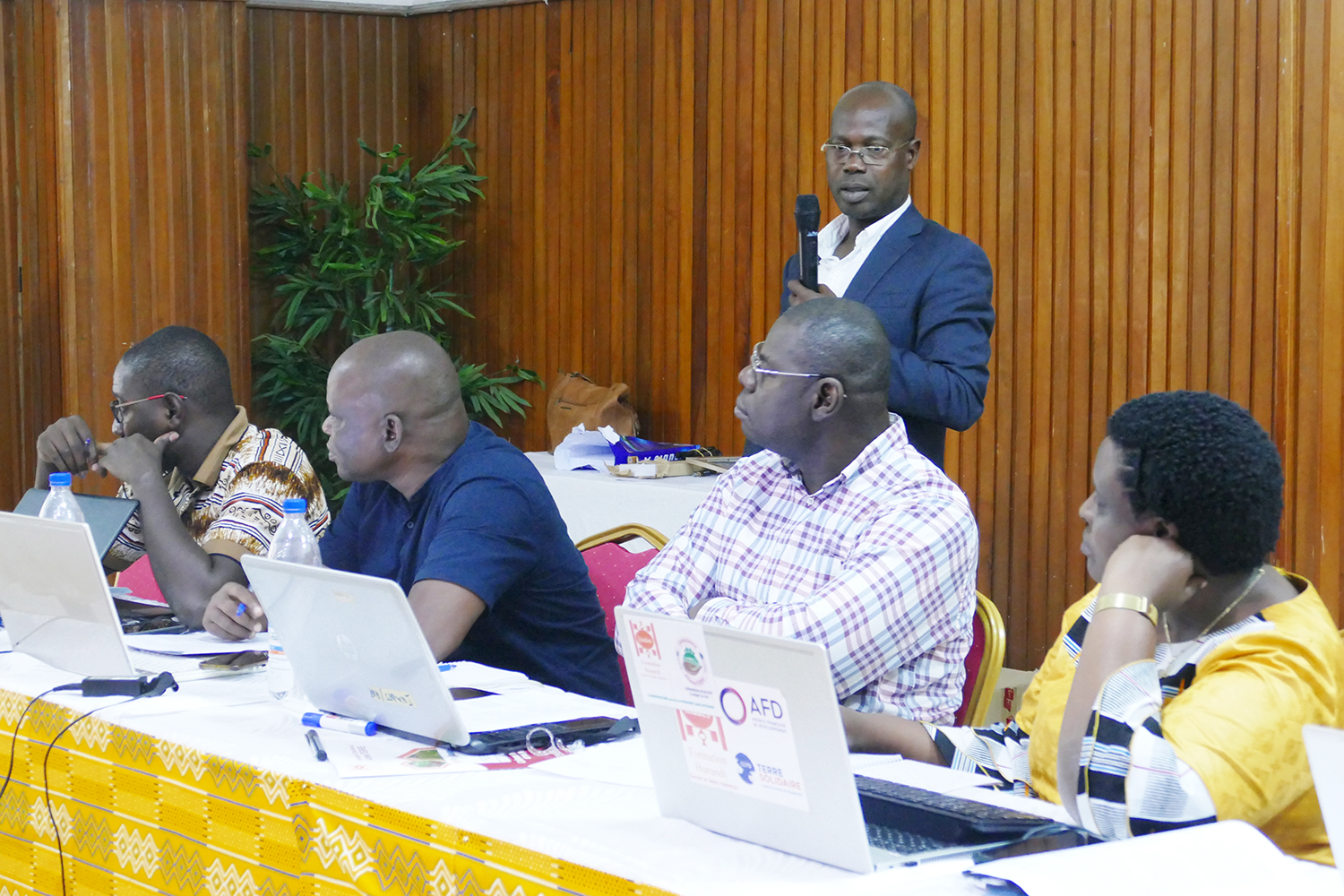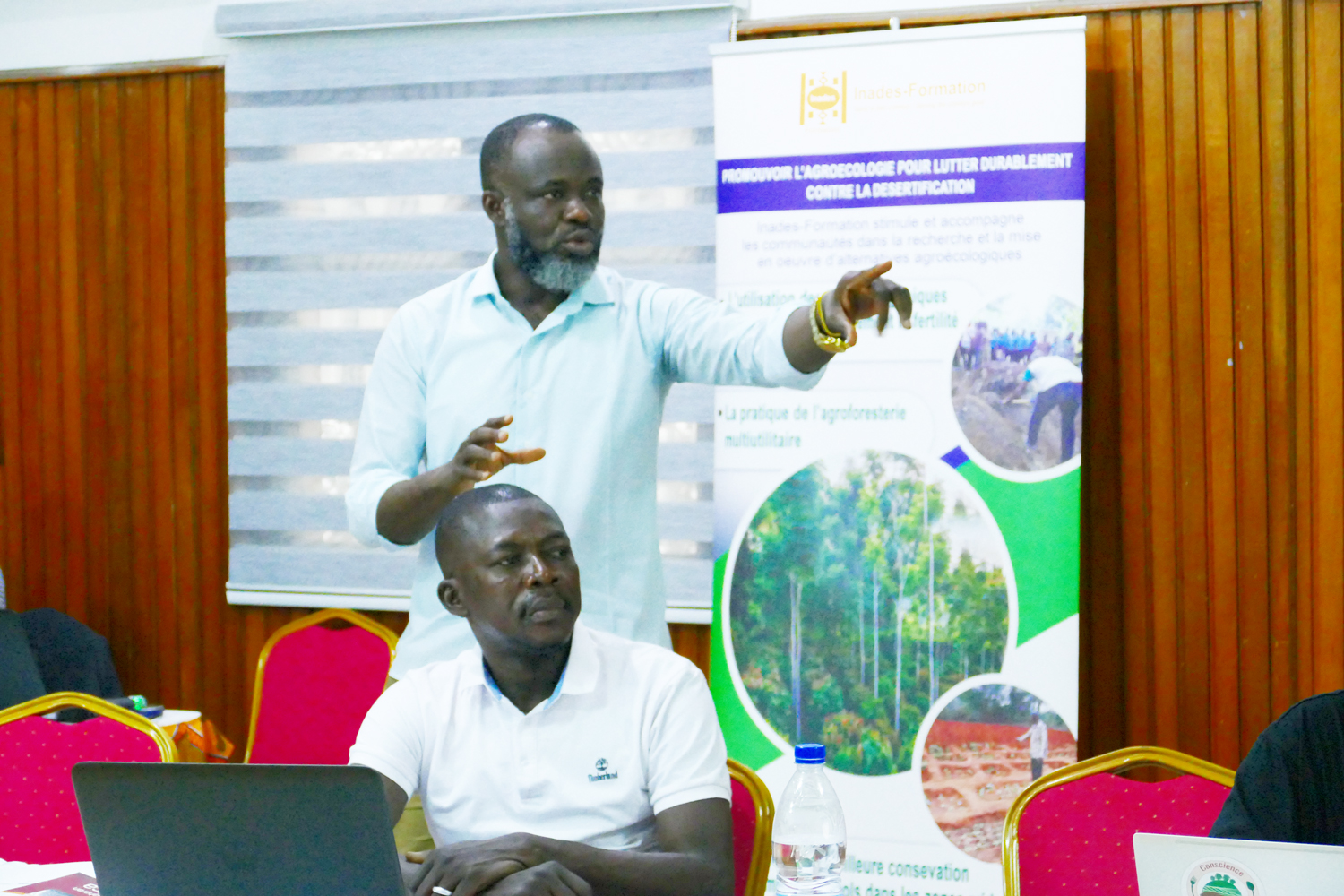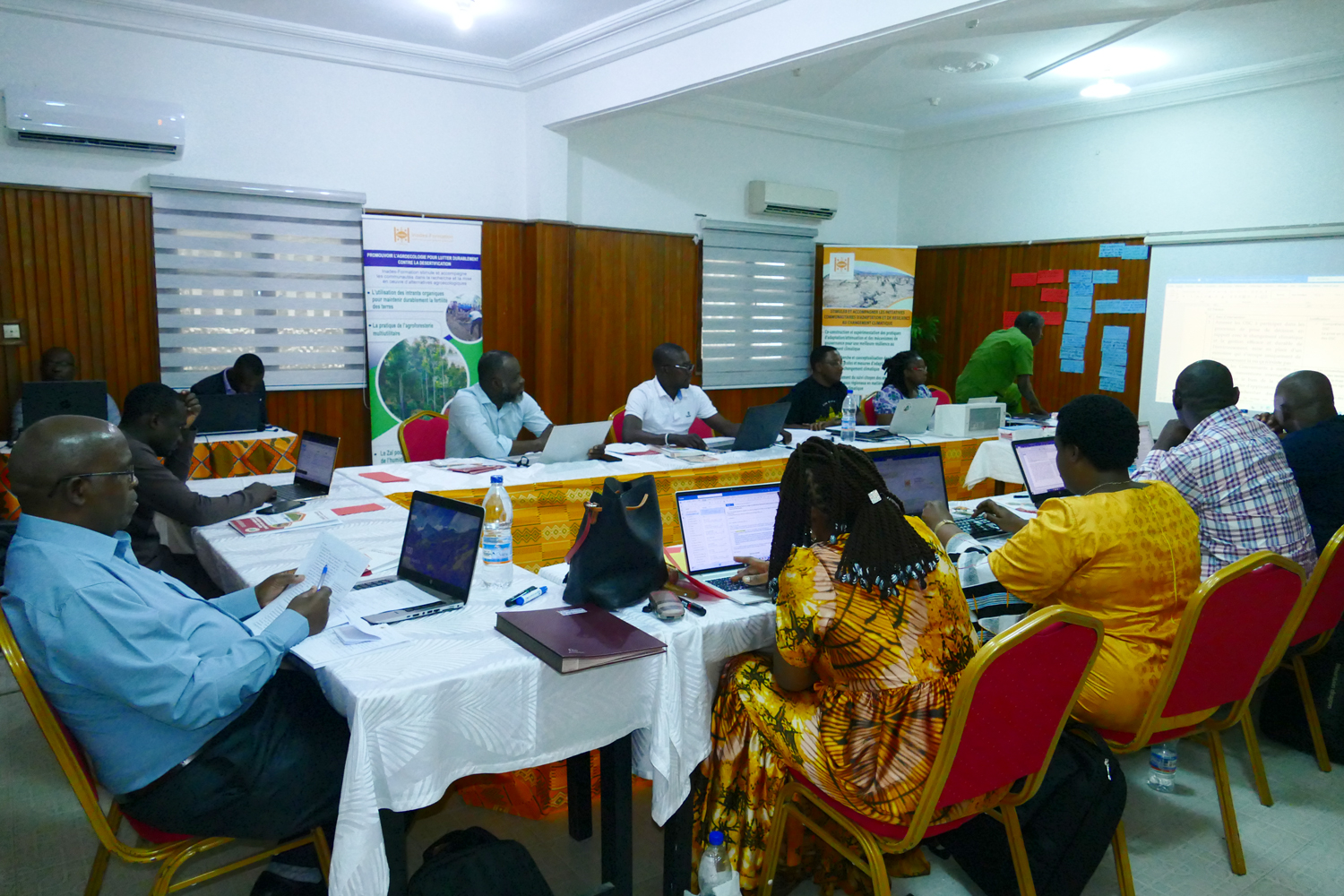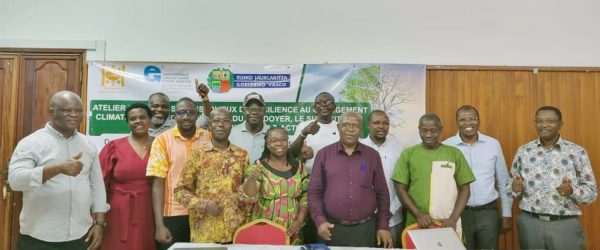Since 2022, Inades-Formation has been working with the Basque Agency for Development Cooperation (ABCD) on projects to help communities adapt to the effects of climate change. After phases of capitalizing on and then scaling up experiences of adaptation practices to the effects of climate change and inclusive governance mechanisms developed by communities in African countries, Inades-Formation is preparing to support citizen monitoring and advocacy.
From March 25 to 27, 2024, in Abidjan, Côte d’Ivoire, the general secretariat of Inades-Formation organized, a regional workshop on climate change resilience issues, the fundamentals of advocacy, citizen monitoring and the development of a draft action plan.
This workshop followed on from 10 country studies on the state of development and uptake of public policy, strategy, regulatory frameworks and programs in response to the challenges of climate change. The workshop brought together representatives from the countries where Inades-Formation’s national offices are based.

Climate change is a reality in Africa, particularly in sub-Saharan Africa, where agriculture is one of the main activities, dependent on constantly changing (farming) seasons.
In some areas, there are various phenomena such as unexpectedly prolonged droughts, floods and storms, and seasonal irregularities in general. The result is the reduction or even disappearance of plant and animal diversity, the spread of tropical diseases, threats to habitats and infrastructures, and so on.
The workshop is part of the implementation of the “Projet d’accompagnement de la mise à l’échelle des expériences développées par les communautés et des dynamiques de suivi citoyen des politiques publiques en réponse au problème du changement climatique en Afrique, 2022-2024”. It is run by Inades-Formation in partnership with the Basque Agency for Cooperation and Development “ABCD”.
This project was preceded by a first phase that capitalized on 50 experiences, including 31 community experiences of adaptation to climate change and 19 experiences of inclusive governance in 11 African countries (Burkina Faso, Burundi, Cameroon, Côte d’Ivoire, DR Congo, Kenya, Rwanda, Senegal, Tanzania, Chad, Togo).
From this exercise, it emerged that there is potential in terms of governance practices and systems for local responses to climate change issues. Strategic framework documents, regulations and public programs should therefore take into account the potential of communities to become more resilient to climate change.
However, in a non-exhaustive way, learning on the development and consideration of public policy, strategic and regulatory frameworks and programs reveals shortcomings in responses to the following issues:
- Food security and sovereignty following seasonal disruptions ;
- The early warning mechanism on the effects of climate change ;
- Climate change emergency response and disaster risk management ;
- Community participation in the planning and implementation of appropriate measures in response to climate change ;
- The organization and concerted action of civil society to make a significant contribution to governance in the field of climate change, and to ensure that the voice of African countries is heard in international agendas and in access to climate financing mechanisms;
- Ecological education for communities more sensitive to the effects of human action in the face of climate change;
 Based on these issues, the workshop identified five priority areas for action:
Based on these issues, the workshop identified five priority areas for action:
- Creation and revitalization of inclusive frameworks for national and regional consultation on responses to climate change problems
- Establishment of citizen monitoring/control mechanisms to monitor and evaluate compliance with signed international conventions and international agendas for the good of society.
- Advocacy for the establishment of green micro-funds accessible to CSOs/NGOs to implement climate change initiatives
- A plea for the systematization of the recognition and valorization of endogenous knowledge in public policies
- A plea for the systematization of ecology and environmental education in education systems
A comprehensive action plan has been drawn up. It will be contextualized by country to take greater account of national and local realities.

Communication Department
Inades-Training General Secretariat









